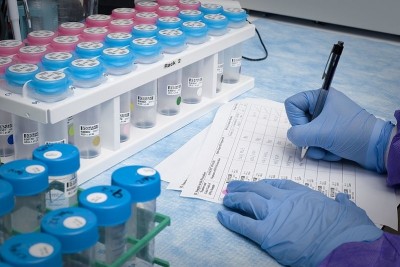Horizon Europe Awards Synergy Grants to Four Austrian Researchers
The European Research Council (ERC) has announced the research groups that will be awarded the prestigious Synergy Grant in the first call for proposals in the new Horizon Europe research framework program. Among them are four groups in which scientists from Austrian research institutions are involved with their teams and will collaborate with top researchers from other countries in the coming years.
 The cross-border research collaborations within the framework of the Synergy Grant are an impressive demonstration of the shared European goals and values. / Picture: © Wikimedia Commons / National Eye Institute, CC BY 2.0 (https://creativecommons.org/licenses/by/2.0)
The cross-border research collaborations within the framework of the Synergy Grant are an impressive demonstration of the shared European goals and values. / Picture: © Wikimedia Commons / National Eye Institute, CC BY 2.0 (https://creativecommons.org/licenses/by/2.0)
The Austrian Federal Minister for Education, Science and Research, Martin Polaschek, congratulates the four top researchers on their new projects and wishes them every success in realizing their projects. This year, four Austrian research institutions are involved in the successful Synergy Grants.
With a total funding volume of around 38 million euros, four Austrian researchers are among those being supported in their research. These include cell biologist Michael Karl Sixt from the Institute of Science and Technology Austria, together with the University of Utrecht and the Centre National de la Recherche Scientifique; quantum physicist Philip Walther from the University of Vienna, together with the Massachusetts Institute of Technology and LMU Munich; mathematician Michael Pinsker from the Technical University of Vienna, together with the Technical University of Dresden and Charles University in Prague; and physicist Peter Puschnig from the University of Graz, together with Research Centre Jülich (Forschungszentrum Jülich) and the University of Regensburg.
Polaschek said he was "convinced that Europe and Austria will benefit." According to the Minister of Education, this will enable Austrian researchers to contribute their expertise not only to individual projects, but also to engage in new perspectives and ideas as part of a team with other excellent researchers.
In the open-topic Synergy Grant calls, small groups of at least two to a maximum of four researchers and their teams can apply to work together on a challenging scientific problem, whereby researchers from non-European research institutions can also be involved. Within a Synergy Grant, one of the researchers assumes the role of the group's Corresponding PI. Up to ten million euros in funding is made available per group.
A total of 360 applications for research projects were submitted in this call. Of these, the best 29 were selected, representing a success rate of 8%. The successful 29 projects involve a total of 105 researchers from 19 different countries.



